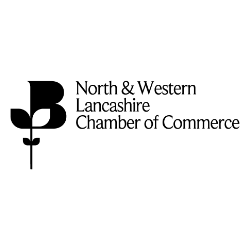Are Family Businesses The New Way Forward For The UKs Economy?
In the UK, family businesses account for over 75% of all business and employ over 50% of all workers. As such, family businesses have a significant role to play in the UK’s economy. In a report undertaken by the IFB Research Foundation (Institute For Family Business), this revealed that 1 in 5 of the largest businesses in the UK are family owned. Of the 1,551 largest companies in the UK, 19.8% are family-owned and most of these are owned by UK families.
Based on these statistics, it goes to show that now more than ever, the UK should be supporting and growing this sector due to the country’s uncertain economic climate.
What Makes A Family Business?
Family businesses come in all shapes and sizes, they run in different sectors and have even been operating for generations. For those lucky ones who have stood the test of time, it can sometimes seem overwhelming for future generations to take note and follow in their footsteps. Whatever their business model, common values are at the core of most families. For a business family, these values often reflect into the workplace. Studies have shown that these foundational values are often the key to their success. If you share the same beliefs and goals, this will make business a lot easier.
Positive Attributes Of A Family Business
Likewise with many businesses, there are positive and also negative characteristics of working in such an environment. To ensure long term success, family businesses should be nurtured by those who support and advise them.
Commitment is key. When it comes to family businesses, there is a larger presence in terms of commitment and accountability . Due to this bond, tied by blood or marriage, this cements a level of commitment often near impossible to replicate in a non-family organisation. Due to the time, effort and money invested in a family business, it would be much more harrowing for family businesses to fail due to their personal and emotional ties.
Stability is also another key factor when it comes to the success of a family business. Whatever the hierarchy, age and maturity are often factors that determine who takes ownership and responsibility when it comes to making vital decisions. Whoever is ‘Head of The Family’ usually leads the business. Dependent on the individual, their ‘reign’ can impact the longevity of the business and overall stability. Reasons for departure are often illness, death and retirement. Unlike hiring externally, another family member will usually take to their birth right and stay in the position for a number of years just like older generations have done.
Family businesses are also very flexible. Unlike in non family firms, families have a tendency to muck in and get involved in a multitude of areas outside of their job role to ensure success for the company. By involving yourself in various different aspects of the business, this allows tasks to be completed in sufficient time, employees can add to their skill set and gain a thorough understanding of the industry they work in.
Another difference that sets family business apart, is having a long term outlook. Family businesses like to plan ahead, sometimes years into the future. Having these long term goals allows businesses to adopt a strategy that works. Knowing that you’re creating an empire for future generations to grow, can give business owners all the encouragement they need.
Finally, family businesses are known to have contributed their own money to ensure long‐term success. This could mean contributing capital, or taking a pay cut. This often comes in handy during challenging times, such as an economic downturn.
Issues for Family Businesses in the UK
Conflict is probably the main reason for the failure of a family business. The main reason conflict arises is due to an overlap of job roles, miscommunication and personal disputes. The fear of outside investment, as well as the Chairman and Chief Executive roles being held by the same individual, can hold negative connotations for family businesses. This can develop into inappropriate behaviour in the workplace and lack of productivity.
More ambitious family businesses understand that external equity or quasi-equity funding can help to achieve their growth aims, so this fear should alleviate over time.
It’s also common knowledge that many family businesses fail to prepare a succession plan. If the owner doesn’t determine who will take over leadership of the company when they step away from the role, this can lead to some difficulties. In order to prevent this, a well defined plan needs to be put in place.
Unfortunately, nepotism often plays a major role within family businesses. Some family businesses are hesitant to let outsiders into their organisations and make powerful decisions. This can often result in family members being given jobs in which they are under qualified.
How to Solve these Problems
The key considerations families must take, are to develop and implement a management succession plan. This should be on the agenda of every family business. It should be properly planned and succession should take place through a staged handover.
Family businesses should not forget that meritocracy is more important than birth right. If a family member is not fully committed to the business or doesn’t have the required attributes, they should not be put in charge.
Non-Executive Directors (NEDs) may be seen as an unnecessary cost to the family business. However, a NED can help to keep emotion out of the Boardroom. This is an important consideration when discussing the future direction of any family business.
How Ampios Can Help
You may need help getting there, but that help can be easily found. At Ampios we have years of experience in a range of different businesses and sectors. Whether you’re looking for an Adviser or a Non-Executive Director for your family business, we will be able to help you. Don’t hesitate to get in touch.
















 They:
They: 


 Suppliers’ Reaction
Suppliers’ Reaction